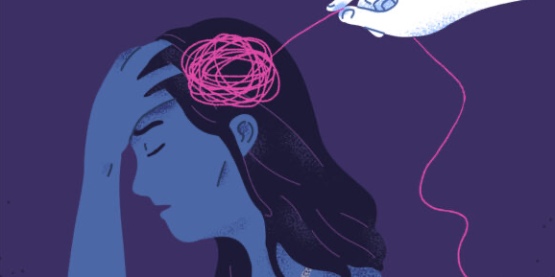
Psychological violence is a form of behavior characterized by one person harming another without causing physical harm. Although not as obvious as physical violence, its effects can be profound and long-lasting. Psychological violence often involves control, manipulation, humiliation, threats or emotional abuse. In this article, we will examine what psychological violence is, its types and how to deal with it.
Types of Psychological Violence
Verbal Abuse: Verbal actions such as humiliation, ridicule, insults, belittling and threats.
Manipulation: Constantly manipulating the other party, lying or withholding information.
Control: Restricting a person's life, deciding who they see or what they do.
Isolation: Separating the person from their social environment, alienating them from their friends or family.
Gaslighting: Making a person doubt their perception of reality, constantly lying or distorting the truth.
Symptoms of Psychological Violence
-Loss of Self-Confidence: The person may lose self-confidence and constantly feel guilty or inadequate.
-Social Isolation: The person may withdraw from his/her social circle and become unable to see his/her friends or family members.
-Anxiety and Depression: Psychological violence can lead to serious mental problems.
-Physical Symptoms: Headaches, stomach upset or other physical symptoms may occur due to stress.
-Humiliation
-Trial
-Making fun of
-Over-criticism
-Don't Insult
-Blame
-Name Calling
-Punishment
-Threatening
-Shaming
-Do not command
-Don't Swear
-Extreme Anger
-Do not lie
-Manipulation
-Emotional pressure
Ways to Cope with Psychological Violence
Awareness and Recognition: The first step is to accept the existence of psychological violence and recognize its symptoms.
Seeking Support: It is important to reach out to trusted friends, family members, or a mental health professional.
Setting Boundaries: Setting boundaries with the violent person can help prevent control and manipulation.
Creating a Safe Environment: Creating an environment where you feel safe can alleviate the effects of psychological violence.
Seeking Professional Help: Mental health professionals can provide support and guidance to overcome psychological violence.
Psychological violence means when one person injures another person emotionally and mentally. This type of violence, which occurs without physical injury, can lower a person's self-confidence, negatively affect their mental health, and reduce their overall quality of life. Some types of emotional manipulation, which seem easy to spot when you read about them, can become very difficult to notice or react to when you experience them. A person who uses one type of emotional violence is likely to use other types as well. Emotional abuse is usually applied in several types of intertwined ways. If the abuser commits these in front of other people or as a joke, it can make everything worse and harder to deal with. Your reaction can be described as "exaggeration". These are very common, and they are all emotional abuse. If you have been the victim of emotional abuse, the most important step you can take is to heal yourself. Have you always had similar relationships in your life? Why and how did you insert yourself into this relationship(s)? Has it always been a relationship in your life? How were you affected by these behaviors? What memories of emotional violence can you recall? If you were there now, what would you say to yourself then? If you do not understand and heal yourself in this regard, even if you walk away from this relationship, you are likely to bring another relationship with similar dynamics into your life. As a result, detailed study and effort is required to improve this issue, but it is definitely possible. Although psychological violence is widespread in society, it is generally invisible. Because there are no clear signs of physical violence, victims often have difficulty recognizing this form of violence. However, its effects are quite serious and can deeply affect mental health. Recognizing the symptoms of psychological violence and knowing ways to cope are important steps to get rid of this type of violence. If you think you are being subjected to psychological violence, you are not alone and do not hesitate to seek help.
